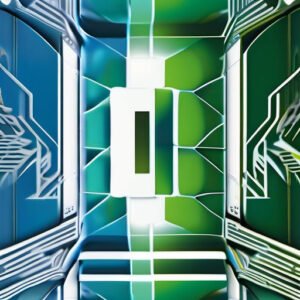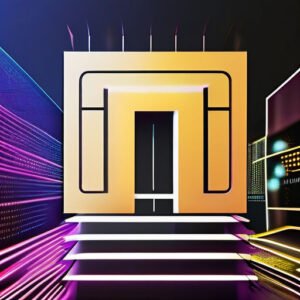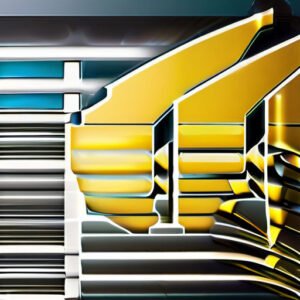When The Universe Gets a Software Update and Things Go Hilariously Wrong
Exploring the Cosmic Canvas: Crafting a Reprogrammed Cosmos
The universe has fascinated humanity since time immemorial: a vast canvas painted with stars, planets, and the mysteries of existence itself. But what if this vastness isn’t a mere unfolding of random cosmic events? Imagine a “reprogrammed cosmos”—a universe deliberately shaped or manipulated, akin to high-functioning artificial worlds—a concept that challenges our understanding of reality. This idea pushes boundaries of science fiction into the realm of possibility, questioning the nature of creation and control within artificial worlds.
In exploring this, we uncover how the idea of a reprogrammed cosmos transcends fiction, influencing both philosophical thought and contemporary scientific pursuit. Dive into a universe where cosmic laws can be rewritten, where boundaries blur between natural and constructed, and discover how this concept reshapes how we view artificial worlds.
The Concept of a Reprogrammed Cosmos
At the heart of the notion lies the idea that the cosmos, rather than passively existing, might be ‘programmed’ and capable of being reprogrammed—similar to a massive, complex artificial world.
What Does “Reprogrammed Cosmos” Mean?
A reprogrammed cosmos suggests that the universe operates like a computational system or a virtual environment with operating rules that can be altered. This hypothesis implies:
– The physical laws we observe could be code or protocols that govern cosmic behavior.
– Alterations to these codes would modify reality at a fundamental level.
– Intelligent agents, technological or otherwise, might be capable of such reprogramming.
Origins in Science Fiction and Philosophy
Science fiction has long toyed with ideas of malleable universes that support narrative creativity:
– Movies like *Dark Star* (1974) and *The Matrix* (1999) explore artificial or simulated realities.
– Philosophers ponder “simulation theory,” the idea that existence might be a sophisticated artificial construct.
In particular, *Dark Star* offers a humorous yet probing look at artificial worlds in space, reflecting early cinematic forays into questions of cosmic control and artificiality.
Artificial Worlds: Redefining Cosmic Boundaries
Artificial worlds—a staple of speculative fiction—are created environments designed and controlled by advanced intelligences. These worlds serve as analogies or literal examples of reprogrammed cosmos ideas.
Construction and Control in Artificial Worlds
Controlled environments like space stations, virtual worlds, or terraformed planets epitomize the intersection of design, programming, and cosmic scale:
– **Terraforming:** Modifying planetary environments simulates a reprogramming of local cosmic conditions.
– **Virtual Environments:** Digital worlds, like those in gaming or simulations, show how realities can be designed and altered by code.
– **Spacecraft Ecosystems:** In sci-fi, ships often serve as microcosmic artificial worlds, with life-support systems as constant regulators.
Examples in Media and Science
– In *Dark Star*, the spacecraft serves as a claustrophobic, artificial universe where crew members face existential absurdities, highlighting how control and unpredictability coexist.
– NASA’s concepts of space habitats reveal aspirations towards creating livable, artificial environments beyond Earth, a real-world counterpart to artificial worlds.
– Advanced simulations in cosmology investigate virtual universes, further connecting digital reprogramming with cosmic understanding.
The Science Behind the Idea: Can the Cosmos Be Reprogrammed?
While largely theoretical, some scientific principles touch on the possibility of modifying or understanding the universe in programmable terms.
Physics and the Universe as Information
Recent theories propose that fundamental physics could be expressed as information processing:
– Quantum information science treats particles as information units.
– The holographic principle suggests that the universe’s information is encoded on a two-dimensional boundary.
These notions support the idea that the cosmos might be describable—and even manipulated—like a giant computational system.
Technological Advances Towards Cosmic Manipulation
Though full cosmic reprogramming remains speculative, several technologies hint at humanity’s creeping control over space:
– **Genetic Engineering of Organisms:** At small scales, altering life’s code is routine, an analogy for cosmic code rewriting.
– **Climate Engineering:** On a planetary scale, we already attempt to influence complex natural systems.
– **Quantum Computing:** Could provide tools to simulate and ultimately influence cosmic systems with high precision.
Implications of a Reprogrammed Cosmos for Humanity
What if such control were possible or even inevitable? A reprogrammed cosmos alters more than just physical reality; it rewrites humanity’s place in the universe.
Philosophical and Existential Questions
– Does a reprogrammed cosmos mean free will is an illusion?
– Could consciousness itself be part of a programmed system?
– Are we the programmers, or are we the programmed?
Such questions echo themes from *Dark Star*’s ironic exploration of human agency in artificially controlled environments.
Ethics of Cosmic Manipulation
– Who holds the right to alter universal laws or cosmic fabric?
– What safeguards should exist to prevent unintended consequences?
– Could cosmic reprogramming cause irreversible disaster for life forms?
These considerations elevate the concept from theoretical to deeply practical concerns for future spacefaring civilizations.
How Pop Culture Shapes Our Understanding of Reprogrammed Cosmos
Cinematic classics like *Dark Star* engage audiences by weaving humor with profound musings about artificial worlds and cosmic control.
Dark Star as a Cult Classic
Initially dismissed as a low-budget comedy, *Dark Star* has gained recognition for:
– Its satirical take on space exploration.
– Portraying an artificial world aboard a spaceship where mechanical malfunctions mirror cosmic absurdities.
– Anticipating themes of artificial intelligence turning against creators, a narrative staple in discussions about controlling a reprogrammed cosmos.
From Dark Star to Today’s Sci-Fi
Current films and series build on *Dark Star*’s foundation, exploring programmed realities with more depth and technology:
– *Ex Machina* delves into AI consciousness.
– *Westworld* examines artificial worlds as playgrounds for humans.
– *Arrival* questions how language can reshape perception, a subtle form of reprogramming reality.
With each iteration, the interest in and understanding of artificial worlds and reprogrammed cosmos concepts deepen.
Looking Ahead: The Future of Cosmic Programming
Where does the idea of a reprogrammed cosmos lead us in the next decades or centuries?
Scientific Frontiers
– Advanced simulations might allow humanity to test cosmic hypotheses in virtual universes.
– Understanding dark energy or dark matter could reveal keys to cosmic “code.”
– Space colonization efforts will increasingly resemble creating manageable artificial worlds.
Broader Cultural Impact
– Growing interest in simulation and reprogramming will influence philosophy, religion, and art.
– Public fascination could spur more funding and innovation in quantum information science and space technology.
The reprogrammed cosmos is not just a sci-fi fantasy—it’s gradually becoming a lens through which humanity examines its role and potential in the vast artificial worlds of tomorrow.
Summary and Next Steps
The concept of a reprogrammed cosmos invites exploration of the universe as a programmable entity, blending science, philosophy, and imagination. From *Dark Star*’s quirky spacecraft to cutting-edge quantum theories, this idea challenges us to rethink the cosmos itself as a form of artificial world. Whether through planned terraforming, advanced computing, or speculative cosmic manipulation, humanity inches closer to understanding how—or if—our universe’s “code” might be rewritten.
To deepen your journey into artificial worlds and cosmic reprogramming, explore current scientific discussions on quantum information processing and cosmology. Consider how emerging technologies might shape this conversation in the near future.
Are you ready to rethink reality and embrace the challenge of the reprogrammed cosmos? Dive into the mysteries, join the dialogue, and imagine the universe as a living code—one that humanity may one day learn to write itself.
For further reading on related cosmology topics, visit NASA’s official site: https://www.nasa.gov/topics/universe/index.html












Post Comment